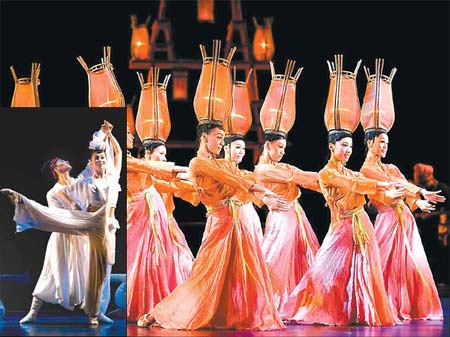In a circular letter to the International Olympic Committee (IOC) dated April 2, 1906, Baron Pierre de Coubertin, founder of the modern Olympic Games invited members to an advisory conference to determine "to what extent and in what form the arts and literature can participate in the celebration of the modern Olympiads".
Coubertin's version of Olympism – what the Olympic Movement aspires to be – is inextricably linked to the arts and humanities "harmoniously joined with sports".

Above and inset: Dance Along the River during the Qingming Festival, a play performed by the Hong Kong Dance Company.(Photo Source: China Daily)
Thanks to his vision, his work has been as applicable to host cities of recent Olympic Games as it was to the nascent Olympic Movement of 1906.
In 2003, Norbert Muller, Manfred Messing, and the Research Team Olympia of the University of Mainz (Germany) studied the meaning of the cultural program to spectators. Research from the 2002 Salt Lake Games showed 84 percent of respondents agreed with the statement – "The Olympic idea combines sport and art".
This significantly high response compares with 72 percent for the 2000 Sydney Games, 23 percent for Atlanta in 1996, and 40 percent for Barcelona in 1992.
The research shows a trend in the growth of awareness of the significance of cultural and arts programs in Olympiads and Olympic Arts Festivals.